Gardening enthusiasts and professionals alike understand the critical role that fertilizers play in cultivating healthy, vibrant plants. Whether you are growing vegetables, flowers, or herbs, the type of fertilizer you choose can significantly impact the success of your garden. With the rise of hydroponic and organic gardening methods, selecting the ideal fertilizer has become more nuanced and essential. This blog will delve into the benefits of using hydroponic fertilizers, particularly those with organic components, to foster plant growth and ensure a bountiful harvest. We will explore what makes hydroponic fertilizer unique, its advantages over traditional soil fertilizers, and how integrating organic elements can enhance your gardening efforts.
What is Organic Hydroponic Fertilizer?
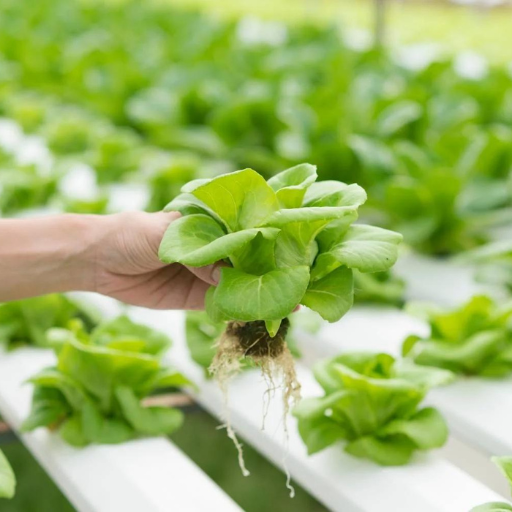
Understanding Organic Fertilizer in Hydroponics
Organic hydroponic fertilizer is a nutrient solution specifically designed to be used in hydroponic systems that adhere to organic gardening principles. Rather than relying on synthetic chemicals usually found in conventional hydroponic fertilizers, organic hydroponic fertilizers are derived from plant extracts, mineral powders, and animal by-products among others. These fertilizers provide nutrients such as nitrogen, phosphorous and potassium to plants through their roots which can take them up from the water they are suspended in. The natural composition of these fertilizers encourages plant growth that is healthier and more environmentally friendly.
How Organic Hydroponic Fertilizers Benefit Plant Growth
Organic hydroponic fertilizers have numerous advantages that promote better development of plants. Firstly, they enhance nutrient uptake by providing plant-essential macro and micronutrients in naturally bioavailable forms. This causes improved root systems and faster growing rates. Secondly, employing organic fertilizers promotes beneficial microbial activity in the hydroponic solution which helps with nutrient cycling and disease suppression. Furthermore, these fertilizers help to maintain an appropriate pH level necessary for absorption of nutrients by plants. Lastly, their minimal application reduces risks of blocking out nutrients or toxic buildup making it possible for a cleaner growing environment.
The Role of Nutrients in Organic Hydroponic Systems
In organic hydroponics systems the availability of nutrients play a critical role towards ensuring optimum growth and health of plants. Essential nutrients are broadly classified into macronutrients such as nitrogen (N), phosphorus (P), potassium (K) needed in larger quantities; and micronutrients like iron (Fe), zinc (Zn), manganese (Mn) required only trace amounts). For easy absorption by the plant roots these must be supplied as bio-available materials.
Nitrogen is critical to leaf structure because it is a component of chlorophyll—the primary pigment involved in photosynthesis. Phosphorus aids in energy transfer and genetic material (DNA/RNA) development, important for root development and flowering. Potassium is involved in various physiological processes including water regulation and enzyme activation.
Equally important, even though needed in smaller amounts, are the micronutrients that take part in many plant activities such as chlorophyll synthesis or enzyme production. Their balanced relationship leads to robust growth and high yields of plants. Organic hydroponic systems tap into these elements from natural sources thereby promoting sustainability and eco-friendliness in growing environments.
How to Choose the Best Hydroponic Nutrient Solution?
Choosing Organic Nutrients – Some Key Factors to Consider
When you want organic nutrients for your hydroponics system, there are a few key things that you should keep in mind so as to make sure that the plants remain healthy and productive:
- Nutrient Composition: The nutrient solution should have appropriate amounts of these essential elements both in macro and micro forms. Composts, worm castings and fish emulsion are common sources of these nutrients in most organic options.
- Bioavailability: It is important to choose nutrients that can be easily taken up by the plants. In other words, the nutrients should be available in a form that plants can easily assimilate into their systems. This is why liquid organic fertilizers have higher bioavailability than solid ones.
- Source and Quality: Ensure that the sources of these nutrients are actually organic and come from sustainable sources. Most quality products will label what they contain plus sometimes how they were made or obtained respectively.
- pH Stability: Select nutrient solutions which help maintain a stable pH level within your hydroponic system. Some organic feeds buffer the pH preventing any changes that would be harmful or detrimental to plant growth.
- Solubility: Make certain also that all particles contained inside this nourishment solution can dissolve fully into water without leaving any residue inside your hydroponic system thus obstructing nutrient uptake.
- Compatibility: Is it possible for you to use other inputs alongside your chosen nutrients? There are those which work well with different types of hydroponics equipment while others do not.
For an organic gardener, it is good for them to know about these features mentioned above as they relate them directly to their particular hydroponics setup so as to achieve better results for their crops. By considering all these factors carefully one will definitely end up with healthy plants having more yields compared when not considered at all.
Hydroponic Gardening’s Best Brands And Products
Three popular names often appear while discussing top brands and products for hydroponic gardening they are General Hydroponics, LOYAL and FoxFarm.
General Hydroponics
General Hydroponics is known for their dependable high quality products in the market. They have a complete range of nutrient solutions and supplements that flourish at different stages of plant growth. Most people go for its Flora Series which has an even mix of all nutrients needed by a hydroponic garden.
LOYAL
One thing that distinguishes LOYAL is its unique formulas that enhance plant growth. A person may not need to worry about keeping their pH levels balanced while using these products as they can do this automatically in your hydroponic system thereby making it easier and efficient when it comes to applying nutrients.
FoxFarm
FoxFarm is popular due to its options which are organic or environmentally friendly. The Big Bloom Liquid Concentrate, among other liquid fertilizers and soil amendments made by them stand out as one of the best tools for enhancing healthy crop development especially for those who opt for organic farming techniques.
These brands offer high-quality products that will run your hydroponic garden effectively providing effective solutions designed specifically to cater for diverse growing needs.
How to Maintain a Balanced Nutrient Solution in a Hydroponic System?
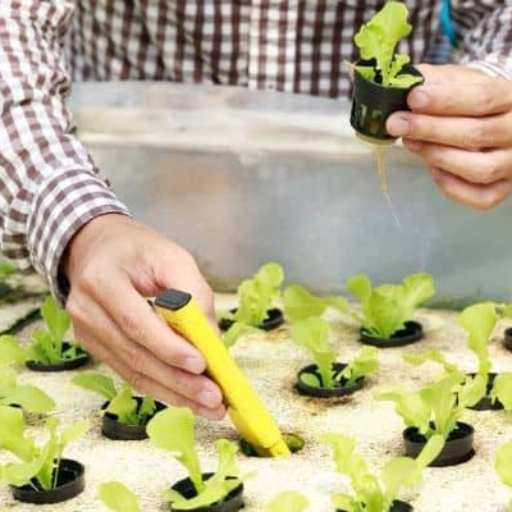
Monitoring and Adjusting pH levels
For balanced nutrient solution in your hydroponic system, it is important to closely monitor and adjust the pH of the solution. First, test the pH of your nutrient solution using a reliable pH meter or test kit on a regular basis. Most hydroponic plants grow best in an environment with a pH of 5.5 to 6.5.
If the soil is more basic (has a higher PH), one can use ph down which usually contains phosphoric acid to bring it down. On the other hand, if soil is acidic (has low PH) you can add ph up that contains potassium hydroxide instead up until it raise (increase). Gradually make adjustments while testing its ph level each time until you get to the required stage. Keeping constant Ph ensures that the plants effectively take nutrients hence healthy growth and high yields.
Regular monitoring and proper adjustments are key concepts in hydroponic farming.
Ensuring Proper Nutrient Availability for Plant Roots
The primary steps involved in ensuring proper nutrient availability for plant roots in a hydroponic system include:
- Optimal Nutrient Solution: Always ensure that you use well balanced nutrient solutions meant specifically for hydroponics. These solutions should have all essential macro and micronutrients at appropriate ratios for healthy plant growth.
- Regular Monitoring: Always keep checking the electrical conductivity (EC) of your nutrient solution to be sure it falls within acceptable range for specific types of plants under cultivation. The amount of dissolved salts indicating how strong nutrients content are can be determined by an EC meter.
- Aeration: There should be proper air supply into nutrient tank to avoid root rotting as well as allowing absorption of nutrients by roots. This can be done by oxygenating water through either placing air stones or pumps resulting into well-oxygenated liquid.
- Circulation and Temperature Control: Therefore, besides maintaining optimum temperature between 65°F and 75°F, circulate the nutrient solution to avoid stagnation and facilitate uniform distribution of nutrients across all plants. This is because extreme temperature conditions can alter intake of nutrients by plants and thus their health negatively.
Consequently, concentrating on these points will guarantee a continuous supply of adequate and constant nutrients to your hydroponics that promote optimal growth and strength.
What are the Benefits of Using Organic Nutrients in Hydroponics?
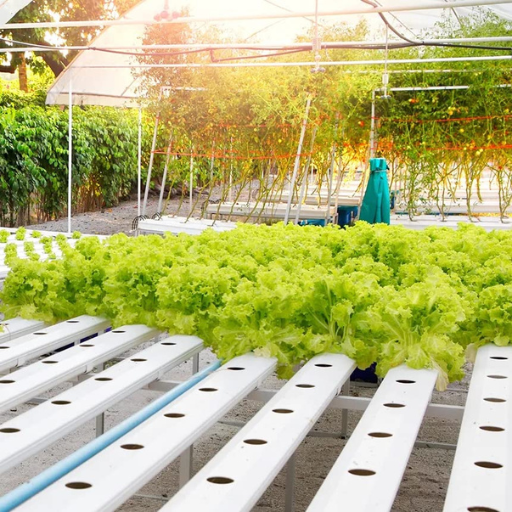
Healthier Plants and Improved Growth Rates
Improved health of plants and higher growth rates are some of the benefits that hydroponics systems using organic nutrients can achieve. Organic nutrients often contain a more diverse range of essential minerals and trace elements, which can result in stronger root systems and more robust plant health. These are derived from natural sources making them easily absorbed by the plants thus increasing their growth efficiency. Also, they promote beneficial microbial activity in the root zone, which can help in decomposition of organic materials leading to increased nutrient availability to the plants. They improve soil structure and reduce chances of accumulation of harmful chemicals thus making hydroponic system more sustainable and productive with improved growth as well as productivity.
Environmental Impact and Sustainability of Organic Solutions
The environmental impact is greatly reduced using organic solutions in hydroponics compared to conventional methods. Hydroponic systems that use organic nutrients therefore depend less on synthetic chemicals that may be leached into waterways thereby affecting aquatic ecosystems. Moreover, these type of nutrient usually come from renewable resources or by-products which advocate for sustainable agricultural practices. This is also because organic solutions promote soil health as well as biodiversity through nurturing beneficial microorganisms again pest resistance as well as disease resilience are enhanced. Furthermore, due to low reliance on industrial fertilizers and pesticides, carbon footprint is minimized hence reducing energy requirement in this kind of farming approach.Thus the integration of organic solutions into hydroponics not only promotes plant wellness but also contributes towards a healthier planet.
Comparing Organic and Synthetic Hydroponic Nutrient Solutions
Several factors should be considered when comparing between organic and synthetic hydroponic nutrient solutions. Synthetic nutrients are normally readily available, have accurate control over levels and so provide consistent plant growth/harvests .They are formulated to provide balanced supply minerals necessary for growth than most others thus being relatively cheaper though they may contribute in environmental degradation if not properly managed especially during run-offs.
On the other hand, by using organic nutrient solutions, healthier and more sustainable growing practices can be promoted. These support beneficial microorganisms, improve soil structure and minimize the chances of nutrient lockout. The organic solutions are derived from human made sources that enhance total plant health as well as resilience but they may be inconsistent in composition and require more regular monitoring including adjustments. Although they are more environmentally friendly, it is difficult to attain same level of effectiveness and consistency like what synthetics have.
Ultimately, whether to choose organic or synthetic hydroponic nutrient solutions depends on the grower’s priorities such as yield maximization, sustainability or costs management.
How to Prepare Organic Nutrient Solutions for Hydroponic Systems?
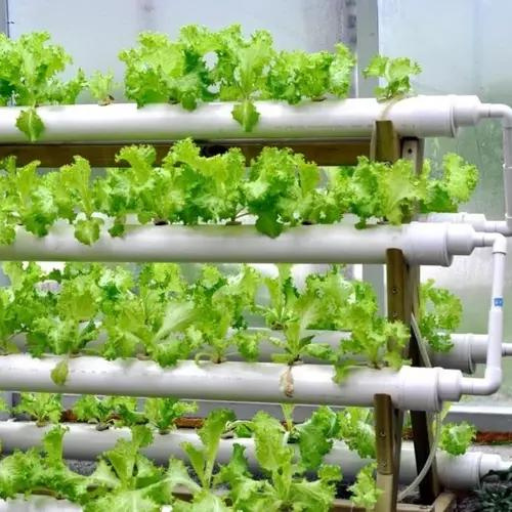
Make Your Own Organic Nutrient Solutions Using these DIY Recipes for Organic Nutrient Solutions
Some successful and uncomplicated recipes have been discovered by me that work well in preparing your own organic nutrient solutions for hydroponic systems. One uncomplicated opportunity is creating a compost tea. I fill a large container with water then steep compost in it using a mesh bag for 24–48 hours, occasionally stirring the mixture. In this way, nutrients are drawn from the compost to form a nourishing tea that my plants love.Lastly, other recipe involves mixing fish emulsion with seaweed extract.I ensure the mixture is well-blended after dissolving one tablespoon of fish emulsion and one teaspoon of seaweed extract per gallon of water.For added micronutrients sometimes I may include a pinch of Epsom salts.In brief, worm castings tea also known as compost tea has also been tried out by me.I set up worm castings on netted bag and let it stay submerged in water over night or two days while agitating it from time to time.These DIY nutrient solutions have helped my plants thrive while keeping my hydroponic system sustainable and eco-friendly.
Use Pre-Mixed Organic Hydroponic Fertilizers
Using pre-mixed organic hydroponic fertilizers can save you time and energy as well as guaranteeing that your plants get balanced diet.Pre-mixed organic fertilizers which are designed particularly for efficient delivery of essential nutrients within a hydroponics environment are the products I have found.Very importantly, application instructions given by producers on their packages should be adhered to when using pre-mixed organic fertilizers.Usually this requires dilution of some quantity of the nutrient solution with water then directly putting into the hydroponic system.What’s more, these pre-mixed solutions often contain a combination of such organics like fish meal, kelp or bat guano among others which provide both macro and micro-nutrient elements.By utilizing these pre-mixed solutions, I can consistently feed my plants with adequate nutrients for optimum growth while observing an eco-friendly approach.
Frequently Asked Questions (FAQs)
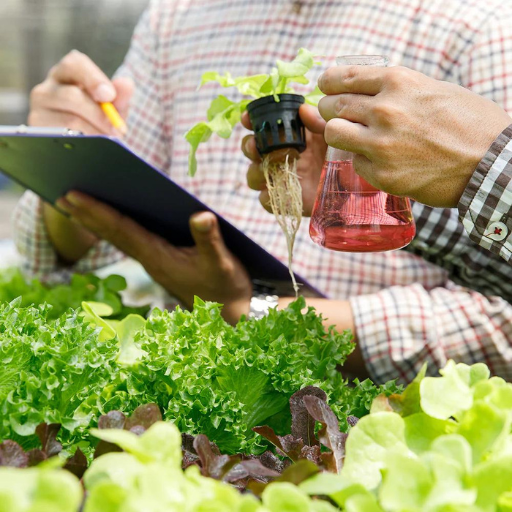
Q: What is the most suitable organic hydroponic fertilizer for my garden?
The finest organic hydroponic fertilizer must meet natural criteria and have total nutrients that will make plants grow. You should look for certified organic alternatives that can be used in hydroponics.
Q: How do I know if the fertilizer I am using with hydroponics meets organic standards?
Look out for labels such as USDA Organic so as to authenticate your fertilizer for it to meet the standards set by the National Organic Standards Board.
Q: What is NPK and why does it matter to hydroponic plants?
NPK means nitrogen, phosphorous, and potassium which are three main elements required by plants. Ensuring there are right NPK ratios in your fertilizing solution becomes essential so that you can achieve the best possible plant nutrition and growth.
Q: Can I use organic liquid fertilizers in my hydroponic system?
Yes, you can use organic liquid fertilizers in your hydro systems since they provide major minerals needed by plants in a form that easily dissolves into water. Look for products made specifically for hydroponics.
Q: What are some advantages of using organic hydroponic nutrients?
Organic Hydroponic Nutrients offer a safe and natural way of nourishing crops enabling them to grow healthier. They also help maintain a balanced ecosystem within your hydro system.
Q: Are there any recommended deep water culture (DWC) specific organic fertilizers?
Yes, there are deep water culture system specific organic fertilizers available. This means shopping around for soluble fertilizers offering a complete nutrient profile tailored towards DWC.






